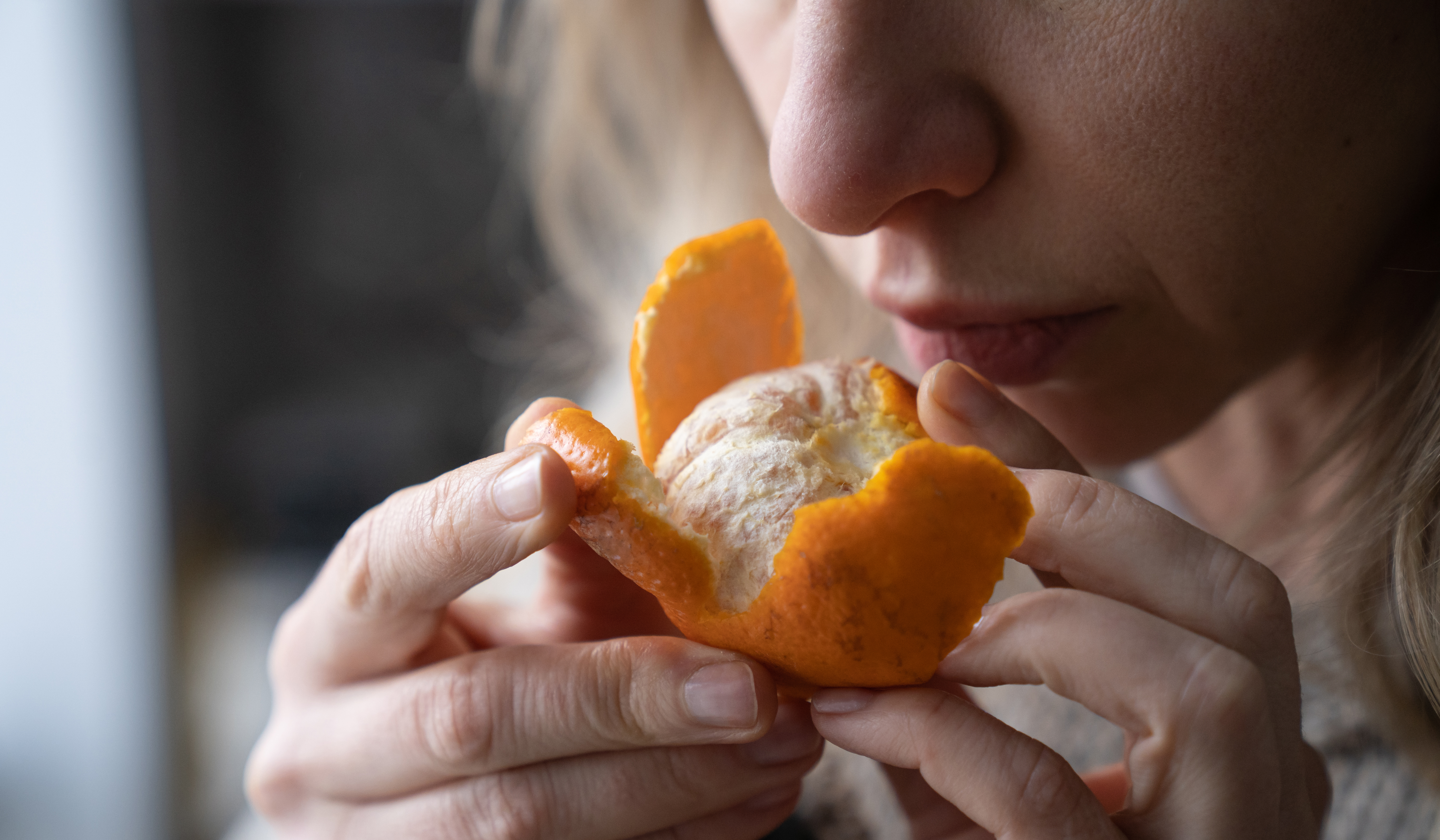
Loss of smell can persist for months after covid
- Select a language for the TTS:
- UK English Female
- UK English Male
- US English Female
- US English Male
- Australian Female
- Australian Male
- Language selected: (auto detect) - EN
Play all audios:

WHAT YOU CAN DO Although the study does not address what COVID-19 survivors can do to regain their sense of smell, Reiter suggests “smell training” may help improve it perhaps by
increasing the sensitivity of any olfactory sensors and neurons that remain functional. “I continue to recommend that to my patients. It’s low cost and low risk,” Reiter said. John
Brooks, M.D., an epidemiologist at the Centers for Disease Control and Prevention and chief medical officer for the agency’s COVID-19 response, also recommended “smell training” — sniffing
lemon, clove and other spices — as potential therapy during a congressional hearing in May. Of course, Reiter suggests the best way to retain your sense of smell is to avoid getting
COVID-19 in the first place. “Get vaccinated, wear a mask, hand hygiene — all of the seemingly simple things that are readily available at least here in the United States, fortunately, are
important,” Reiter said. “Prevention is worth a thousand pounds of cure, in this case, because the cure isn’t there.” RESEARCH ONGOING Since April 2020, VCU researchers have been
conducting a study of adults with COVID-19-associated smell and taste loss to determine how long the loss might last, what factors may influence recovery, and to help identify treatments.
“The more we learn from those who’ve been affected, the better we can advise their health care providers and even individuals themselves on how to manage those symptoms,” study lead author
Daniel Coelho, M.D., a professor in the VCU Department of Otolaryngology — Head and Neck Surgery, said in a statement. In an earlier edition of the journal, VCU researchers reported that
56 percent of COVID-19 survivors weren’t generally enjoying life as much while experiencing a loss of smell or taste. More particularly, 87 percent indicated a reduced enjoyment of food, 55
percent a loss of appetite and 37 percent unintentional weight loss. Nearly half (45 percent) also were concerned that their inability to smell smoke posed a safety risk. Going forward,
the researchers plan to study how different variants of COVID-19, such as the delta variant, affect smell and taste loss and recovery.
